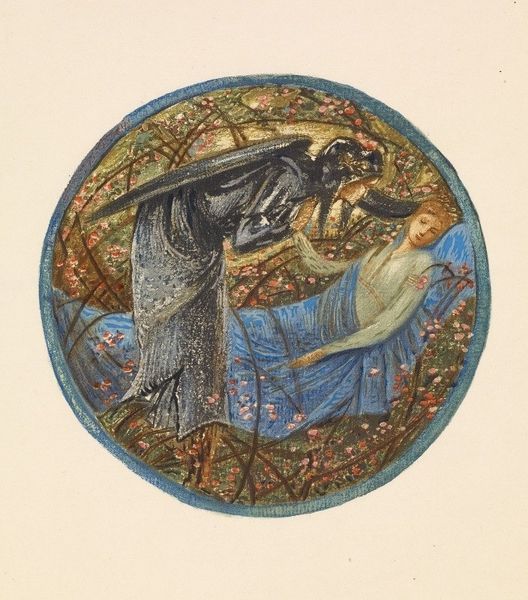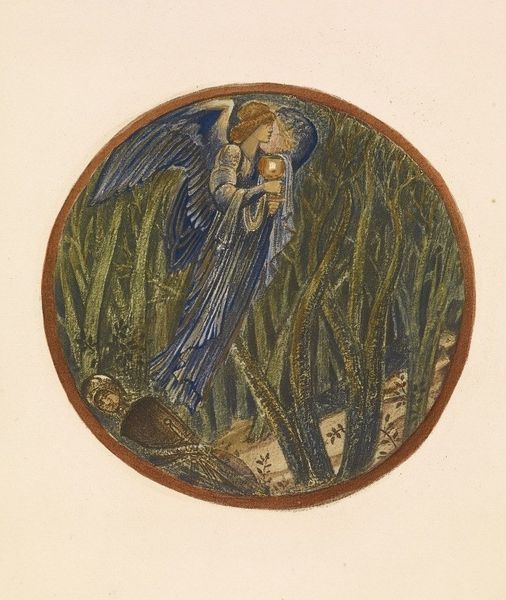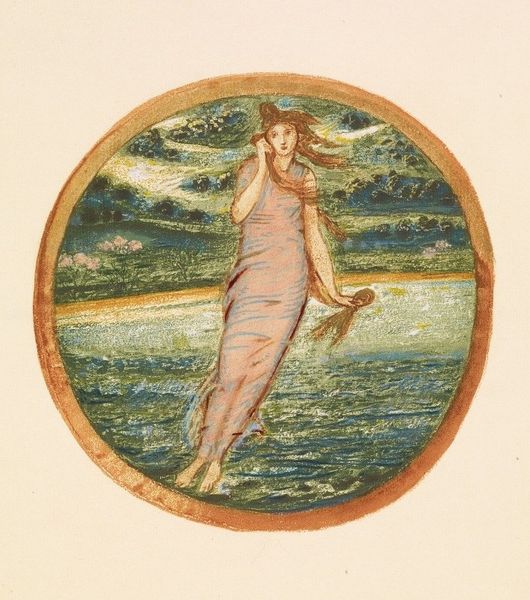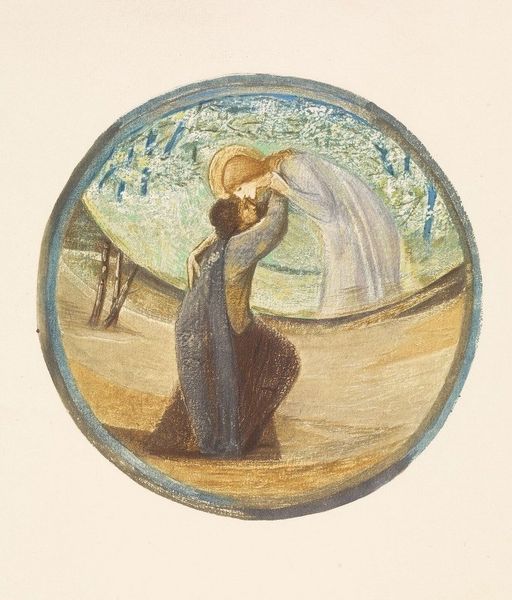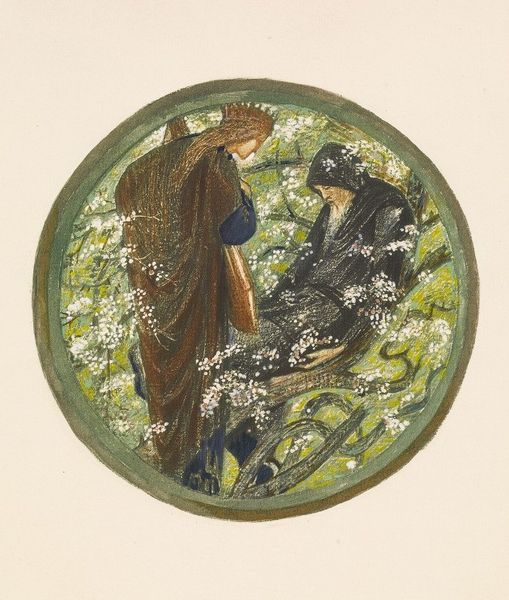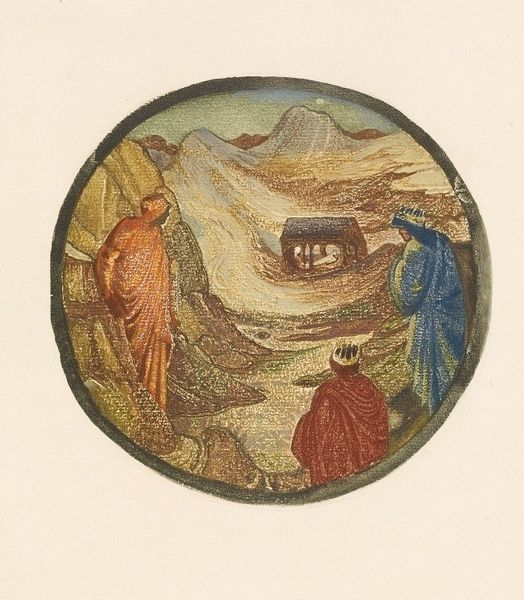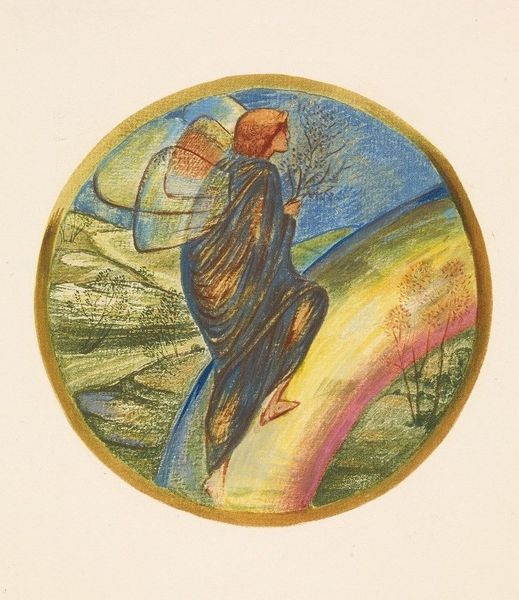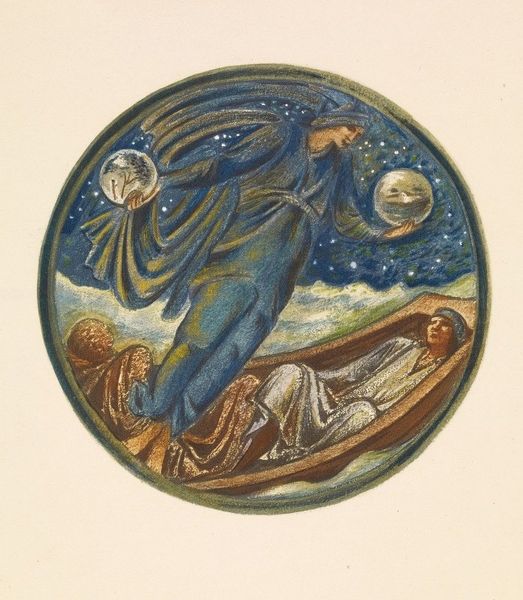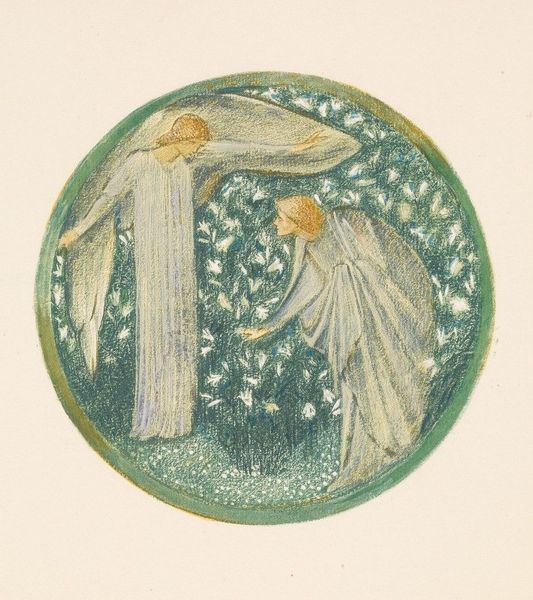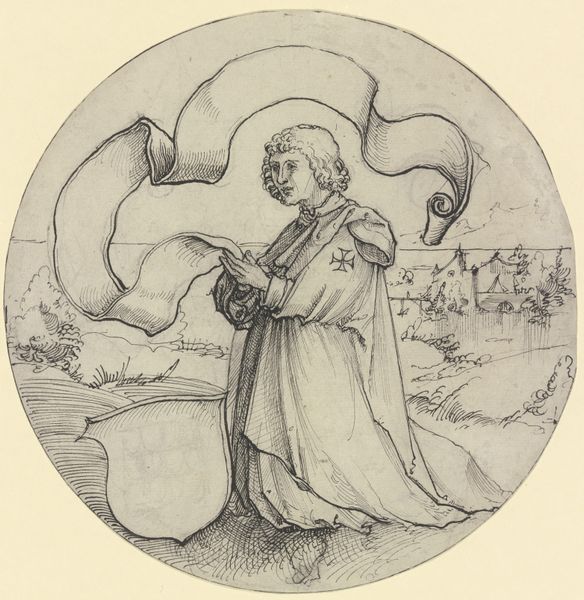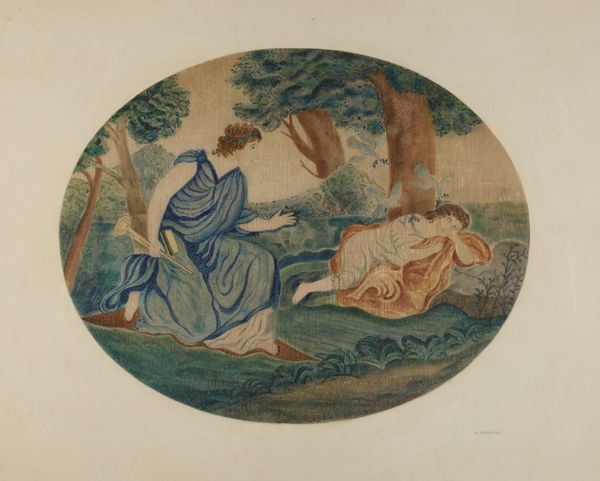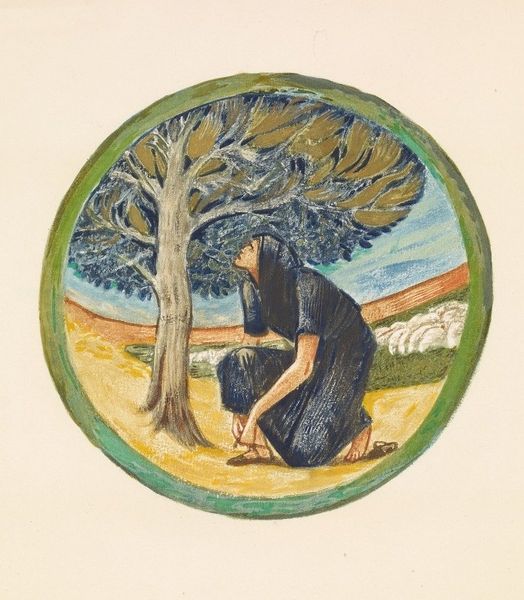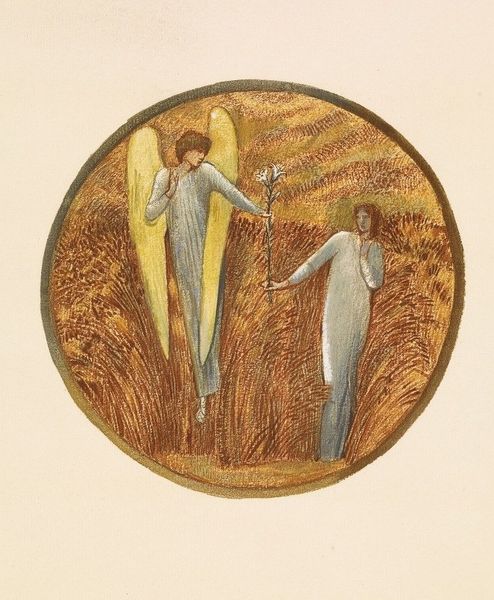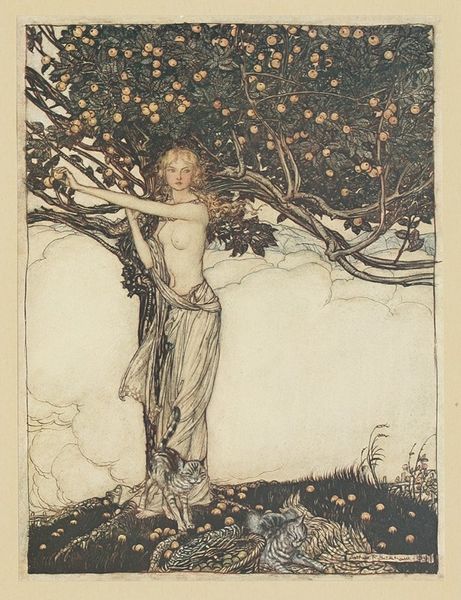
drawing, coloured-pencil, pencil
#
drawing
#
coloured-pencil
#
landscape
#
figuration
#
coloured pencil
#
pencil
#
symbolism
#
watercolour illustration
#
history-painting
#
pre-raphaelites
Copyright: Public Domain: Artvee
Edward Burne-Jones created *Key of Spring* using watercolor and gouache over graphite, likely in the late nineteenth century. The artwork depicts a woman in classical robes, presumably a personification of spring, as she touches a key to a barren tree. Burne-Jones was a British artist closely associated with the Pre-Raphaelite movement. The Pre-Raphaelites were deeply interested in medieval and early Renaissance art. They rejected what they saw as the stale academicism of the Royal Academy. Like other Pre-Raphaelites, Burne-Jones looked to the art of the past for his aesthetic inspiration. This return to earlier models was bound up with a critique of industrial society. Figures like Burne-Jones created a romantic, idealized vision of pre-industrial society in their art. Analyzing the artwork, and others of its time, through historical resources helps us to understand the cultural values and anxieties that shaped artistic production in nineteenth-century Britain.
Comments
No comments
Be the first to comment and join the conversation on the ultimate creative platform.
